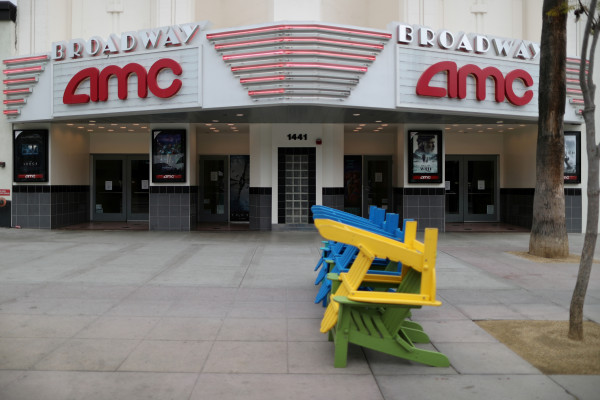AMC And Universal Studios Agree On VOD Early Premiere Deal

The still ongoing global coronavirus pandemic is changing the way the film and entertainment industry does business. Aside from pushing film studios to adjust their film release schedules, the pandemic has now resulted in a compromise between theaters and studios with regards to video-on-demand.
Variety reports that Universal Studios and theater chain owner AMC have come to an agreement with regards to the window between a film’s time in movie theaters and its debut on home entertainment options like video-on-demand.
In the agreement, Universal movies can now be shown on video-on-demand platforms after spending three weeks in AMC theaters. Before this agreement, the standard amount of time before movies could premiere on home entertainment was three months.
While the agreement shortens the time when Universal can have its movies on home entertainment options, it does limit those home entertainment options to premium video-on-demand. This means that the movies will likely not be on streaming services like Netflix after three weeks. Instead, they can be rented on platforms like Google Play or Itunes but for prices not lower than $20. AMC theaters will also share in the proceeds made from these rentals.
CNN notes that this is a historic moment between exhibitors and movie studios, as the exclusivity of movies in theaters for three months has been in place for decades. While other movie studios have not made any similar moves, this new agreement will likely spur other studios to act.
Both Universal and AMC say that the agreement is necessary to ensure the survival of the film industry especially in the face of the global coronavirus pandemic. CNN quotes Universal chairman Donna Langley as saying that the partnership is meant to ensure that the film distribution system continues to thrive.
Meanwhile, AMC CEO Adam Aron says this “new industry model” is something that the company is embracing. He also says that movie studios earning more from video-on-demand platforms means more money for theatrical releases, which in turn will benefit exhibitors.
The agreement is certainly an about-face for AMC and Universal, who had a very public disagreement when the movie studio premiered the animated movie sequel Trolls World Tour on video-on-demand. Trolls World Tour went on earning $100 million over three weeks, prompting Universal to announce that they would be using video-on-demand more.
The pronouncement resulted in AMC announcing that they would not be screening Universal movies in any of their theaters around the world. Universal responded by saying that video-on-demand premieres would complement the conventional theater release.














